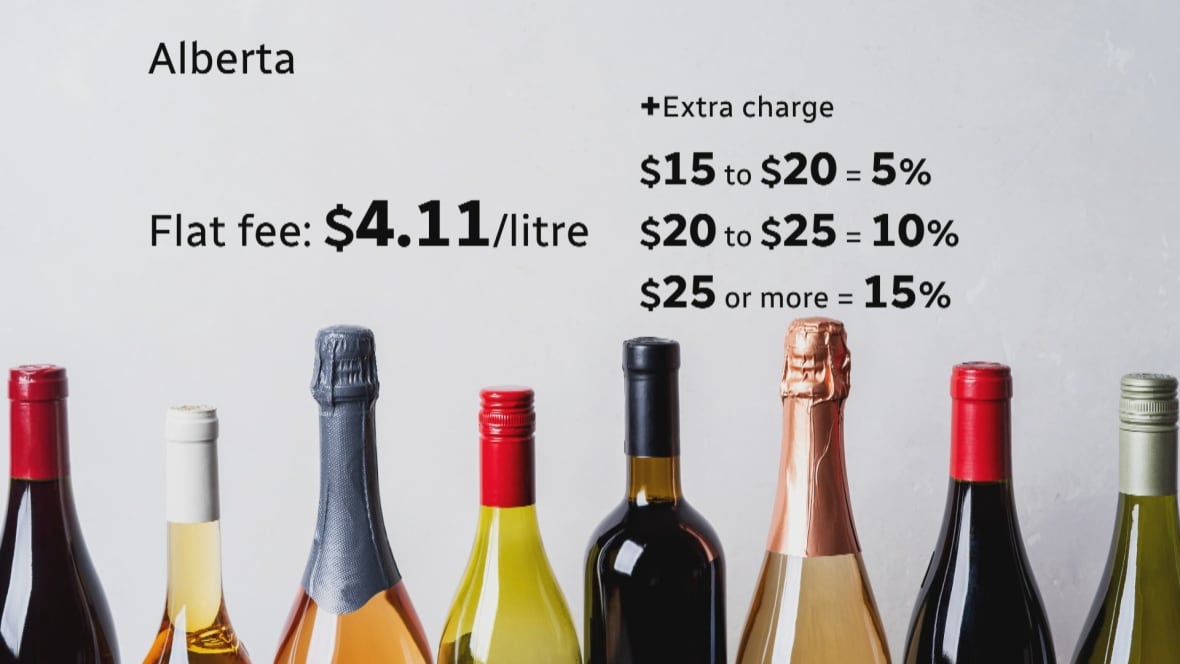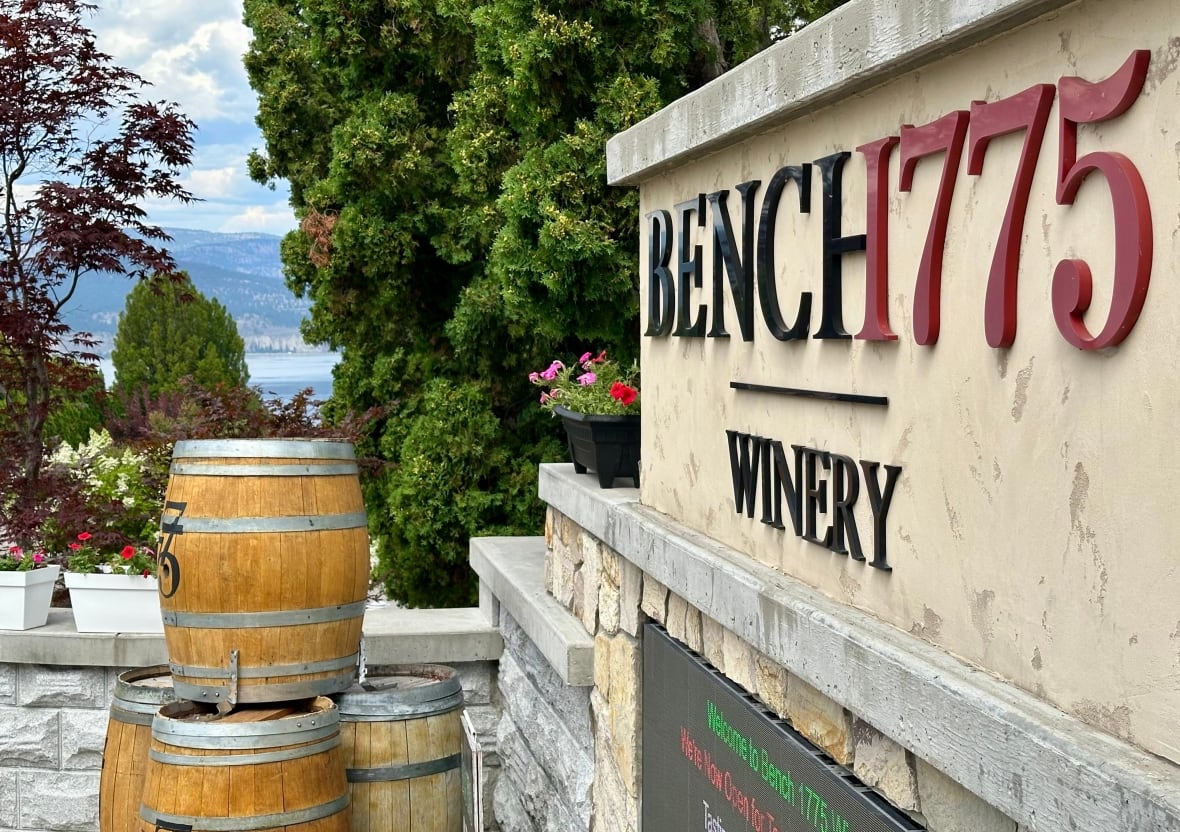Open for business? B.C. wineries call out high fees charged by Alberta

Three months after Alberta's new fees on wine were introduced, B.C. wineries are starting to feel the pinch as the amount of lost sales add up — that's despite a trade deal between the provinces that allows Albertans to buy directly from B.C. wine producers.
The fees come at a time when governments are looking to reduce trade barriers between provinces due to U.S. President's Donald Trump's ongoing threats of tariffs. Alberta, in particular, often boasts about leading the way on improving trade.
"We could be doing a lot more business," said Ron Kubek, the owner and CEO of Lightning Rock Winery in Summerland, B.C., who estimates Alberta's fees on a $30 bottle add about an extra 30 per cent to the price.
At Bench 1775 Winery in Penticton, B.C., overall online sales would be about 30 to 40 per cent higher if not for Alberta's fees, according to hospitality manger Joshua Kim.
"It's huge," he said. "It's kind of a slap in the face, to be honest with you, for a lot of B.C. wineries."
The wineries were optimistic about an expected rise in sales this summer after a new program was launched for B.C. wine to be sold directly to drinkers in Alberta. However, the introduction of higher fees has poured the excitement down the drain.

Beginning in April, the Alberta increased its flat fee on wine, while also introducing an added charge for any bottle that cost more than $11.25. The new fee increases depending on the price of the wine, up to 15 per cent.
Alberta wine pricing is now the most expensive in North America, according to the Alberta Hospitality Association.
"They removed all the regulatory barriers. That was great news, they got the red tape out of the way. But then they added in new taxes just on wine, which feels particularly punitive at a moment like this," said Jeff Guignard, CEO of Wine Growers British Columbia.

"It's frustrating, to be honest with you. We had a deal in place and then it really feels to us like Alberta has just screwed this up," he said.
Some wineries are likely skirting the rules and selling directly to Albertans, Guignard said.
"If you make a tax policy this confusing and irrational, some folks just throw up their hands and say we're not going to bother to do it," he said, although he encourages his members to follow the rules.
The fees are charged on all wine, no matter the origin. However, the fees do impact B.C. and Ontario wine in particular, because virtually no Canadian wine is priced below the $11.25 threshold.

"Alberta believes in free and open trade, and we're open to finding opportunities to improve it with our provincial partners," said Service Alberta and Red Tape Reduction Minister Dale Nally, in a statement.
"Our agreement with B.C. is reducing red tape, making it easier for Albertans to buy B.C. wine but still ensuring wineries pay the fees Alberta collects on liquor sales. These agreements are an important step toward improving trade in liquor and related products," he said.
In June, Alberta became the first province to resume selling U.S. alcohol. Some provinces continue to ban the sale of American alcohol products that began earlier this year following the trade war between the two countries.
Mixed messagingAlberta Premier Danielle Smith often promotes the province as open for business and leading the way on cutting taxes and red tape.
Those messages come across as hypocritical for Kubek, with Lightning Rock Winery, because the new fees are effectively a tax that discourage interprovincial trade.
"She's championing free trade. At the same time, she's championing taxes that we never had before. They're saying one thing nationally, but then they're penalizing us on the other side," he said.
"She wants to be Captain Canada, but for me, she's Captain Tax Grabber," Kubek said, adding that it is now cheaper for him to sell wine in the U.S. compared to in Alberta.

Internal trade within Canada is improving, according to the Canadian Federation of Independent Business, although Alberta has lost its status as a leader in removing barriers over the last year.
Alberta was ranked lower in the organization's recent report card compared to 2024 because it has yet to introduce or pass legislation adopting mutual recognition, which opens the door for governments to accept each other's standards or regulations of products, labour and services without the need for additional testing.
cbc.ca





